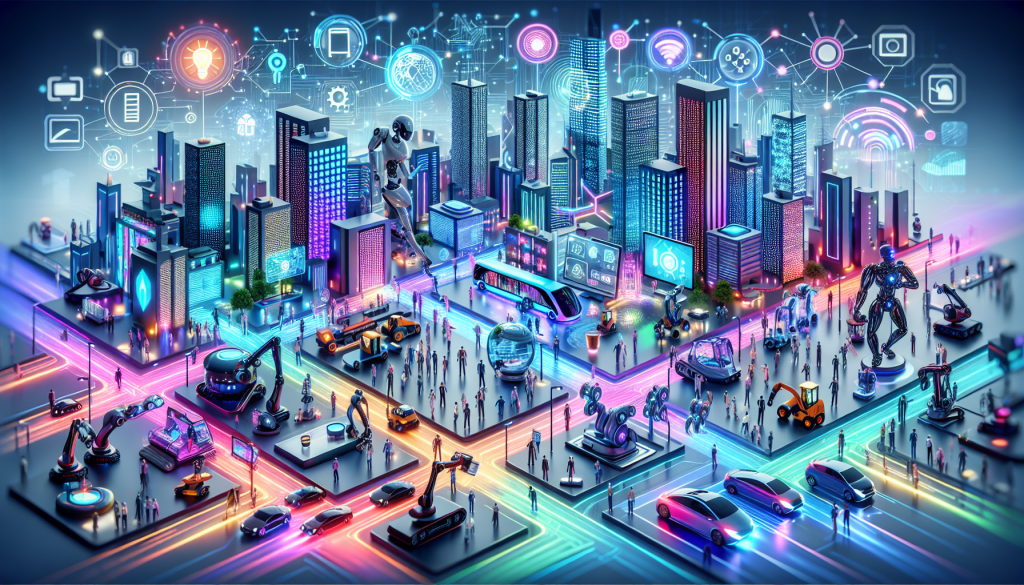
In recent years, AI-driven innovation has emerged as a pivotal force in transforming industries worldwide. This groundbreaking technology redefines traditional practices and challenges the limits of what was previously considered possible. With artificial intelligence (AI) technologies advancing at a remarkable pace, they are beginning to revolutionize industries by automating mundane tasks, enhancing decision-making capabilities, and driving a new wave of innovation across various sectors.
At its core, AI-driven innovation refers to the integration of AI technologies into the innovation process, facilitating the development of novel products and services, optimizing business operations, and creating new market opportunities. As we delve deeper into the 21st century, AI is not just transforming industries but is fundamentally altering the very nature of innovation itself.
One of the most profound impacts of AI-driven innovation is seen in the automation of routine tasks. Industries such as manufacturing, logistics, and healthcare benefit immensely from AI’s ability to execute repetitive and laborious tasks with unparalleled precision and efficiency. Automation reduces operational costs and frees up human resources for more complex and creative tasks, fostering an environment where innovation thrives.
Moreover, AI-driven innovation significantly enhances decision-making processes. By harnessing the power of big data and machine learning algorithms, AI systems can analyze vast datasets at incredible speeds, extracting insights that would be impossible for humans to discern. This data-driven decision-making empowers businesses to make informed choices, optimize strategies, and predict future trends, thereby gaining a competitive edge.
In industries like healthcare, AI-driven innovation has transformed patient care through advanced diagnostic tools, personalized treatment plans, and predictive analytics. AI algorithms can identify patterns and anomalies in medical data, leading to early diagnosis of diseases and tailored treatment plans. This enhances patient outcomes and revolutionizes the way healthcare is delivered, making it more efficient and effective.
The creative industries are also witnessing a renaissance, thanks to AI-driven innovation. Generative AI, a subset of artificial intelligence, can create original content, such as music, art, and literature, by learning from existing datasets. This blurs the line between human creativity and machine-generated output, opening new avenues for artists and creators. AI’s ability to suggest new possibilities and overcome human cognitive limitations paves the way for unprecedented creativity and innovation.
AI-driven innovation is not just about efficiency and creativity but also about expanding the boundaries of what is possible. By integrating AI technologies, industries can explore new frontiers and develop innovative solutions to complex problems. From autonomous vehicles and intelligent virtual assistants to AI-powered legal advisors and financial analysts, AI is reshaping industries by creating products and services that were once confined to the realm of science fiction.
One illustrative example is AI’s impact on the automotive industry, where it is driving the development of self-driving vehicles. These autonomous vehicles rely on sophisticated AI systems to navigate roads, monitor surroundings, and make split-second decisions. As this technology continues to mature, it holds the promise of revolutionizing the automotive industry, transforming the way we commute, and enhancing safety and efficiency on our roads.
Despite its transformative potential, AI-driven innovation raises several ethical and societal concerns. As AI systems become more capable, questions about data privacy, algorithmic bias, and the impact on employment become increasingly pertinent. It is crucial for industries to address these issues proactively, ensuring that AI-driven innovation is harnessed responsibly and equitably.
As we look towards the future, it is evident that AI-driven innovation will continue to reshape industries across the globe. Companies that embrace this technological revolution stand to gain significant competitive advantages, while those that resist may risk falling behind. By leveraging AI’s capabilities, businesses can streamline operations, enhance creativity, and unlock new opportunities for growth and success.
In conclusion, AI-driven innovation is not just a trend; it is a transformative force that is revolutionizing industries. By automating processes, enhancing decision-making, and expanding the boundaries of creativity, AI is reshaping the way we innovate and do business. As we navigate this AI-driven future, it is imperative for industries to adapt, innovate, and harness the power of AI responsibly, ensuring that the benefits of AI-driven innovation are realized for the betterment of society.